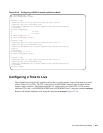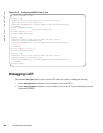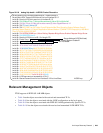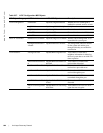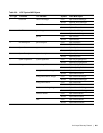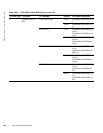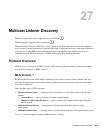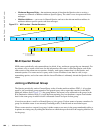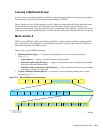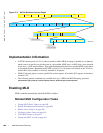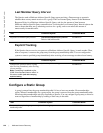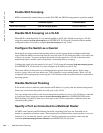Multicast Listener Discovery | 605
27
Multicast Listener Discovery
Multicast Listener Discovery is supported only on platform: e
MLD Snooping is supported only on platform: e
Multicast Listener Discovery (MLD) is a Layer 3 protocol that IPv6 routers use to learn of the multicast
receivers that are directly connected to them and the groups in which the receivers are interested. Multicast
routing protocols (like PIM) use the information learned from MLD to route multicast traffic to all
interested receivers. MLD is analogous to IGMP, which tracks IPv4 multicast receivers.
Protocol Overview
MLD version 1 is analogous to IGMP version 2. MLD version 3 adds the ability to include and exclude
sources and is analogous to IGMP version 3.
MLD Version 1
Routers use MLD to learn which multicast addresses have listeners on each of their attached links. For
each link, the router keeps a list of which multicast addresses have listeners and a timer associated with
each of those addresses.
There are three types of MLD messages:
• Multicast Listener Query — a message sent by the Queerer to learn which multicast groups have
listeners.
• General Query — a query to which all listeners should respond.
• Multicast-Address-Specific Query — a query to which only listeners for the specified group
should respond.
• Multicast Listener Report — a message sent by listeners declaring their multicast group
subscriptions.
• Multicast Listener Done — a message sent by a listener declaring that it is leaving a multicast group.
Figure 27-1 shows the packet structure of MLD version 1 packets.



